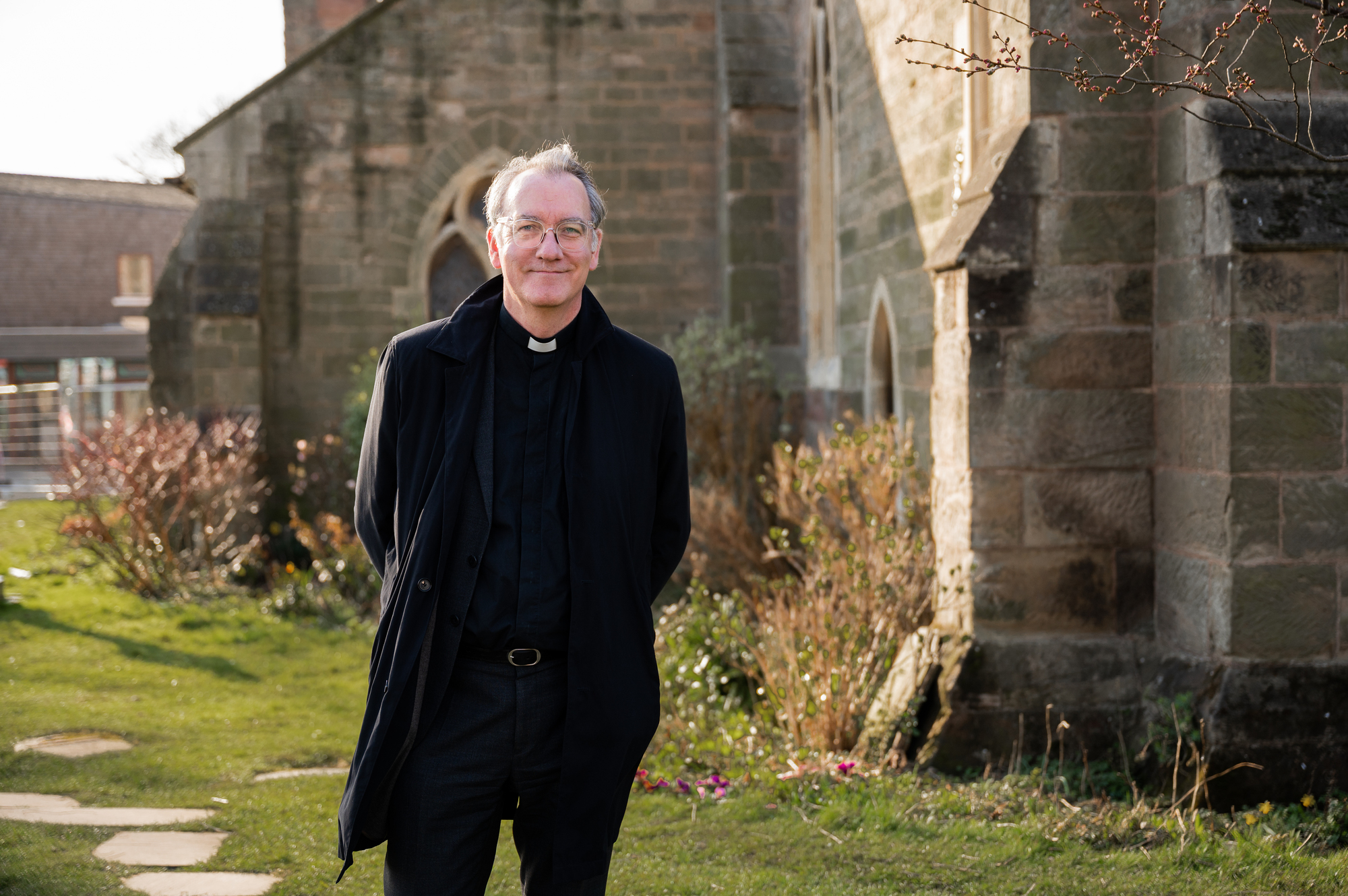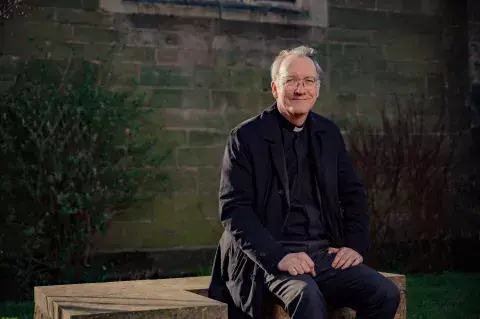
When Rev. Dr. Richard Sudworth received his COVID-19 vaccine — or “jab”— he said it was more than a medical procedure, it was a solemn affair.
“It is really quite moving,” said Sudworth, Secretary for Inter Religious Affairs to the Archbishop of Canterbury and KAICIID Board Member, “we thank scientists, we thank medical professionals, but we also thank God. It’s a gift.”
It is this gratitude, said Sudworth, that moved a coalition of partners in the United Kingdom, including Church of England, Office of the Chief Rabbi and the Mosques and Imams National Advisory Board, to work with UNICEF to launch a vaccine equity programme that would help schemes such as COVAX – an international cooperative formed to make sure low- and middle-income countries have fair access to COVID-19 vaccines.
Called “Give the World a Shot,” the programme operates on the premise that if people want to express their gratitude after receiving the vaccine, they can give money to support those communities still struggling to access it.
“Modest in what it’s trying to do, it’s very ambitious too,” said Sudworth. With donations going to provide protective kits to health workers or to help transport doses of vaccines, they set a target of helping UNICEF deliver 2 billion vaccines.
Although an increasing number of countries’ inoculation programmes are underway, global vaccine rollout remains an uneven affair.
According to the Duke Global Health Innovation Center Launch and Scale Speedometer’s latest data, high-income countries already own more than half of all doses purchased worldwide. At this rate, estimates suggest that vaccine supplies will be too low to inoculate the entirety of the world’s population until at least 2023.
Experts say providing widespread access to COVID-19 vaccines is necessary to ensure global immunity against the deadly disease. It is also, said Sudworth, something the world’s faith communities must address together.
“The state can do a lot, but there is a need for us all to ask – what can I do once I get my vaccine?”
Sudworth is no stranger to the impact that interreligious dialogue and cooperation can have in the world. Having previously worked in inner city Birmingham for 15 years, served as a Church Mission Society (CMS) partner in North Africa, and curate and parish priest in multifaith settings, Sudworth knows what it takes to mobilise multiple faith communities around a common goal.
As part of preparations for the “Give the World a Shot” programme, Ephraim Mirvis, Chief Rabbi of the United Hebrew Congregations of the Commonwealth, Justin Welby, Archbishop of Canterbury, and Qari Asim, Chair of Mosques and Imams National Advisory Board met together and shared how each of their respective faith commitments inspired them to participate and encourage their communities to do so as well.

Sudworth said the idea of “Eucharist” – or “thanksgiving” – inspired Archbishop Welby to call on Christians to give back to others out of the good gifts they already received. Rabbi Mirvis added that the book of Genesis speaks of how all humans are created in the “image of God” and equally deserving of dignity. Imam Asim, for his part, quoted the Quran and its dictum, “whoever saves a life, it will be as if they saved all of humanity.” (Q 5:32)
These individual, but aligned, motivations produced a very personal and communal sense of what needs to be done. “People came to the table with inspiration from their own traditions but left it with something that could be done together,” Sudworth said, “our motivations might be different, but there is a task we have in common.”
Sudworth added this is also a prime opportunity for people of no faith to work with religious partners to do a huge amount of good based on the “practical, non-faith truism, that while one person has COVID, we are all at risk,” he said.
To get involved at the local level, Sudworth provided a pretty straightforward summons.
“Download the app, visit the websites, scan the provided QR codes and give.”
Sudworth said that because people can step up very personally and contribute, the programme reminds people in a fragmented world that they are part of a worldwide family. It means that “if I get my jab on Sunday in Birmingham, someone in Burkina Faso will be getting their jab soon after me.
“Although in a remote way, it offers a tangible connection with someone across the globe.”
Beyond making financial contributions, Sudworth also emphasised how important it is for faith leaders and religious communities to be role models when it comes to promoting “vaccine confidence.”
Noting the reality that some faith leaders are casting doubt around the efficacy, or safety, of vaccines, Sudworth said that the solution is not to “wag the finger,” but work with faith communities to build confidence and point to exemplars leading the way.
“Some communities are wary of vaccines for good reason,” said Sudworth, “there is a torrid history of vaccines being used destructively and dishonestly among, for example, the Black community in the UK.”
But, he underlined, that while people of religion – or no religion – can be disruptive when it comes to vaccine confidence, “we must humbly receive the challenge from suffering, marginalised communities, and work alongside them for the common good and be better than we were before.”
Read more about faith leaders on the front lines against COVID-19
To that end, Sudworth said it has been an honour to work with various leaders in the UK – Black Pentecostal leaders, imams, and others – to encourage everyone to get vaccines when they are made available.
Beyond vaccine inequality, Sudworth said there are lessons to be learned here for interreligious practitioners looking to work together across religious boundaries on a variety of global challenges.
“There are certain problems in our world that face every one of us,” he said. From climate change to extreme poverty, Sudworth said “because of their nature, our response is impoverished if we don’t work together.”
Sudworth said the ancillary implications of the pandemic have highlighted, revealed, and accentuated the pre-existing isolation of disenfranchised communities and their lack of access to resources including, and beyond, vaccines.
“This programme is one gesture of interfaith collaboration toward the common good, but there remains deeper, generational challenges around these other inequalities,” he said, “after this, there’s still a huge amount to be done together.”
For now, the challenge at hand remains: to get the vaccine to as many as people as possible, as quickly as possible. In other words, Sudworth said, “to give the world a shot in more way than one.”
Read more about strategies and stories of faith communities fighting the pandemic around the world.